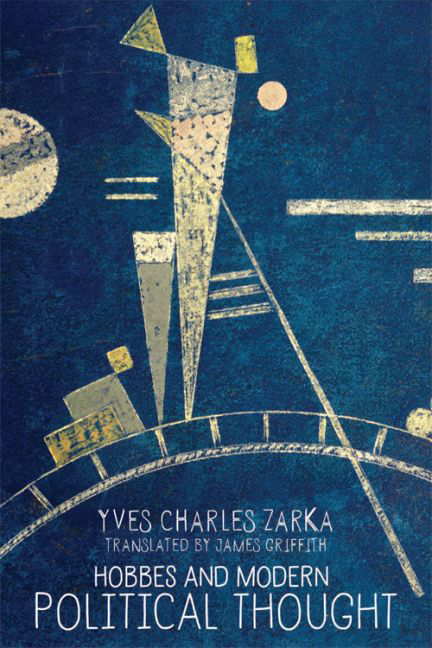Book contents
- Frontmatter
- Contents
- Translator's Introduction
- Foreword
- 1 Journey: To the Foundations of Modern Politics
- Part I Individual and State
- Part II Language and Power [Pouvoir]
- Part III Fundamental Concepts of Politics
- Part IV Hobbes According to Two Contemporaries
- 11 Hobbes and Filmer: Regnum Patrimoniale and Regnum Institutivum
- 12 Hobbes and Pascal: Two Models of the Theory of Power [Pouvoir]
- Conclusion
- Bibliography
- Index
12 - Hobbes and Pascal: Two Models of the Theory of Power [Pouvoir]
from Part IV - Hobbes According to Two Contemporaries
Published online by Cambridge University Press: 23 September 2017
- Frontmatter
- Contents
- Translator's Introduction
- Foreword
- 1 Journey: To the Foundations of Modern Politics
- Part I Individual and State
- Part II Language and Power [Pouvoir]
- Part III Fundamental Concepts of Politics
- Part IV Hobbes According to Two Contemporaries
- 11 Hobbes and Filmer: Regnum Patrimoniale and Regnum Institutivum
- 12 Hobbes and Pascal: Two Models of the Theory of Power [Pouvoir]
- Conclusion
- Bibliography
- Index
Summary
BEYOND THE CONVERGENCES
The convergences of Hobbes and Pascal's anthropological and political conception have often been emphasised. These convergences concern points as important as the theory of the expansion of the human self, the universalisation of the desire for domination, the doctrine of interhuman relationships, the necessity of the existence of a political authority that has the broadsword and justice, etc. at its disposal. We can thus think, without great fear of being mistaken, that Pascal read or at least heard talk of Hobbes, in particular of his De Cive. Certain Pascalian claims on the collective conduct of men or on the necessity of power [pouvoir] often seem, if not simple repetitions, at least copies of Hobbes's positions. Most often, Pascal seems to recognise in it an at least partial truth that he tries hard to restore to a level of determined reading. We do not intend to recapture and re-examine these Pascalian repetitions and displacements. This, not only because much has been done on this plane, but also and above all because it seems to us that, despite their real convergences indicated, Pascal and Hobbes's politics remain very differently minded, above all when we consider the question of the nature and the functioning of political power [pouvoir]. Hobbes and Pascal very much seem to furnish two distinct models of the theory of power [pouvoir]. In order to attempt to show this, we will thus examine three points, making it possible to determine the sites of divergence of the two analyses of the political: (1) institution or institutionalisation; (2) adequation or inadequation; (3) effects of reason or reason of effects. At each of these levels, Hobbes's theses and arguments will be developed less for themselves than in view of putting the specificity of Pascalian positions into perspective.
INSTITUTION OR INSTITUTIONALISATION
Hobbes's political doctrine is, in its central point of flexion, a theory of the contractual [contractuelle] institution of the state. The distinction between the republic of institution and the republic of acquisition does not affect the central character of the notion of institution itself. In opposition to this doctrine of explicit or implicit juridical institution of power [pouvoir], Pascal formulates a theory of the institutionalisation of force in right that has a different meaning.
- Type
- Chapter
- Information
- Hobbes and Modern Political Thought , pp. 234 - 246Publisher: Edinburgh University PressPrint publication year: 2016



